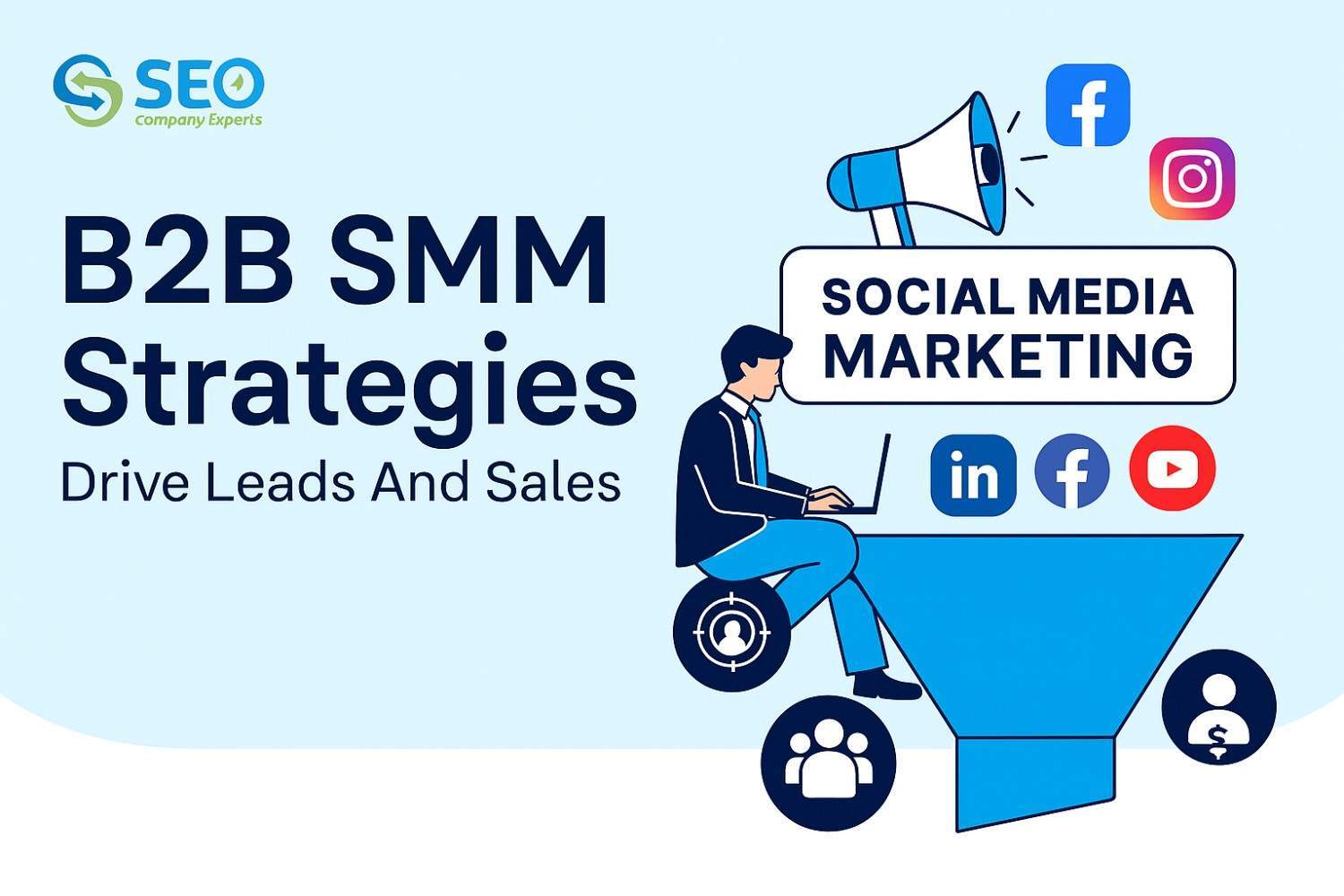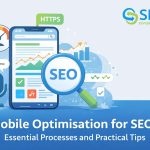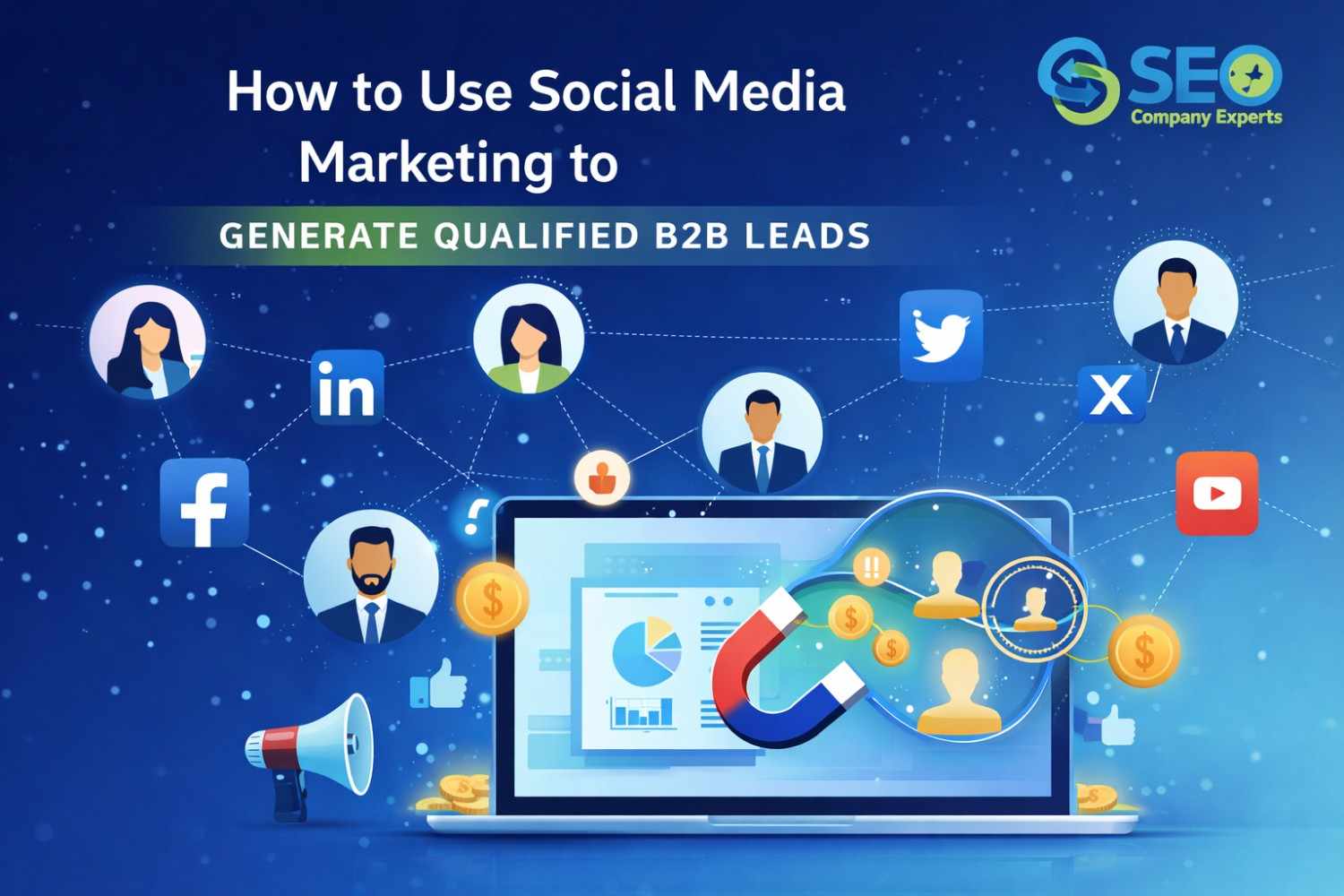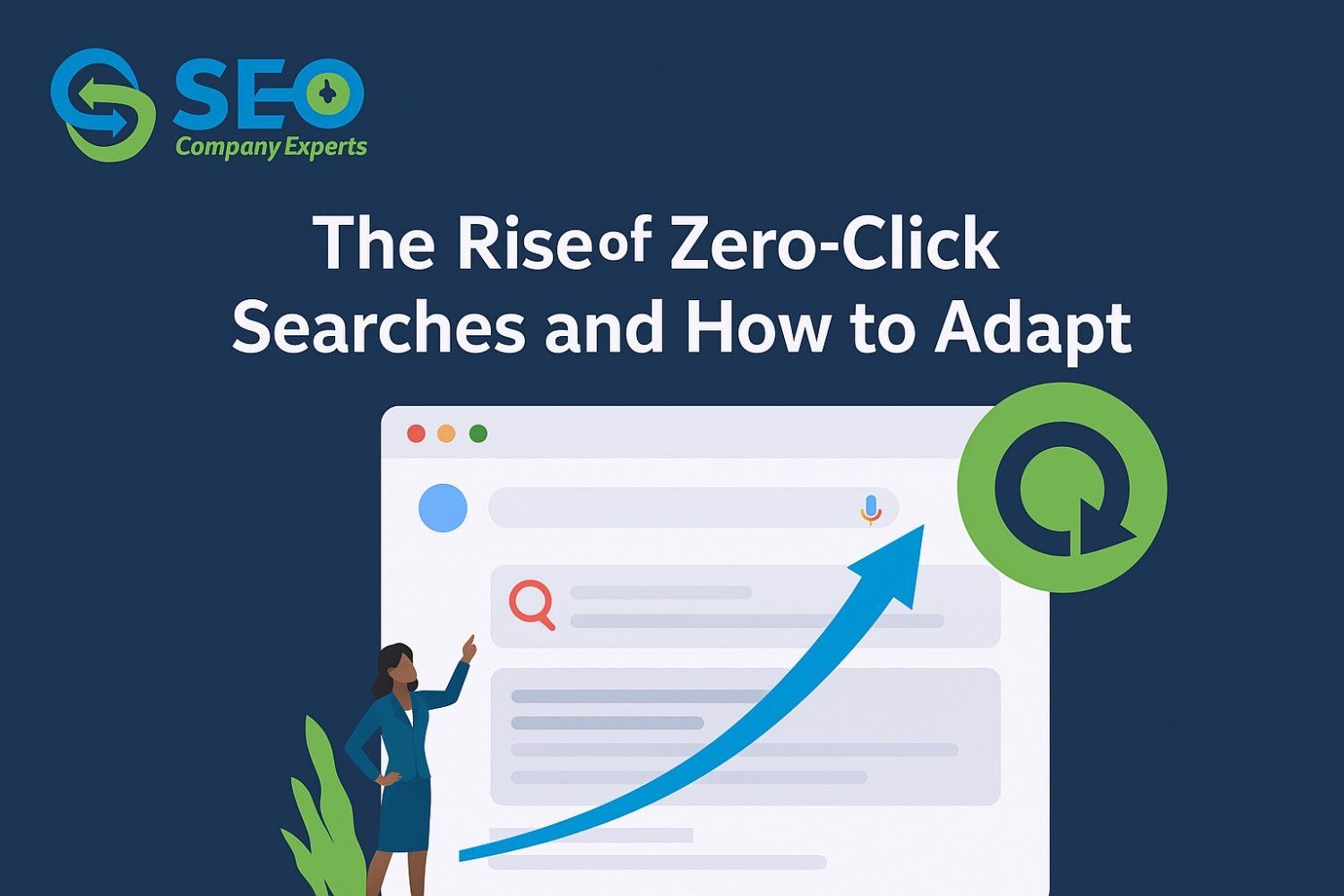

Your competitors are closing deals while your B2B company struggles to generate qualified leads from social media. You’re posting regularly, engaging with followers, but your social media efforts aren’t translating into tangible business results. This disconnect between social media activity and lead generation is costing B2B companies millions in missed opportunities every year.
The solution lies in implementing strategic B2B social media marketing that focuses on lead generation rather than vanity metrics. Unlike B2C marketing that targets emotions and impulse purchases, B2B social media marketing requires a systematic approach that nurtures long-term relationships, builds trust, and guides prospects through complex decision-making processes. By leveraging the right platforms, content strategies, and automation tools, B2B companies can transform their social media presence into a powerful lead generation engine that drives consistent sales growth.
What Is B2B Social Media Marketing?
B2B social media marketing involves using social platforms to connect with other businesses, build professional relationships, and generate qualified leads. Unlike traditional advertising, it focuses on providing value through educational content, thought leadership, and strategic networking. The goal is to establish trust and credibility that ultimately converts prospects into customers.
B2B vs B2C Social Media Marketing Strategies
B2B social media strategies differ significantly from B2C approaches in several key areas. B2B marketing targets decision-makers who research extensively before making purchases, often involving multiple stakeholders in the buying process. The sales cycles are longer, requiring consistent nurturing and relationship-building over months or even years.
B2C marketing, conversely, focuses on emotional triggers and immediate gratification. B2C content is typically more visual, entertaining, and designed for quick consumption and sharing.
Key Components of Effective B2B Social Media Strategy
A successful B2B social media strategy encompasses several critical elements:
- Target audience identification and buyer persona development
- Platform selection based on where your prospects spend time
- Content strategy that educates and adds value
- Lead nurturing systems to guide prospects through the sales funnel
- Performance measurement to track ROI and optimize campaigns
Why B2B Social Media Lead Generation Matters in 2025
B2B social media lead generation has become essential as traditional outbound marketing loses effectiveness. Modern B2B buyers conduct 67% of their research online before engaging with sales teams. Social media platforms provide unprecedented access to decision-makers, enabling companies to build relationships and generate qualified leads at scale.
Best Social Media Platforms for B2B Lead Generation
Choosing the right platforms is crucial for B2B social media success. Each platform serves different purposes and reaches distinct professional audiences. Understanding where your target audience spends time and how they prefer to consume content determines your platform strategy.
What Is the Most Effective B2B Platform for Lead Generation?
LinkedIn consistently ranks as the most effective B2B platform, generating 80% of B2B social media leads. However, platform effectiveness depends on your specific industry and target audience. Technology companies often find success on Twitter, while visual industries leverage YouTube and Instagram effectively.
LinkedIn: The Ultimate B2B Lead Generation Platform
LinkedIn dominates B2B social media with over 900 million professionals worldwide. It’s specifically designed for business networking and professional content sharing. The platform’s advanced targeting options allow precise audience segmentation based on job titles, industries, company sizes, and professional interests.
LinkedIn Content Strategies That Convert
Effective LinkedIn content focuses on industry insights, professional development, and business solutions. Share case studies, industry reports, and thought leadership articles that demonstrate expertise. Video content performs exceptionally well, generating 5x more engagement than text-only posts.
LinkedIn Sales Navigator for B2B Prospecting
Sales Navigator provides advanced search capabilities and lead recommendations based on your ideal customer profile. It enables direct outreach to decision-makers and helps track prospect engagement with your content. Companies using Sales Navigator report 52% higher conversion rates compared to standard LinkedIn approaches.
X (Twitter) for B2B Thought Leadership
Twitter excels for real-time industry discussions and thought leadership positioning. It’s ideal for sharing quick insights, participating in industry conversations, and building professional networks. The platform’s fast-paced nature requires consistent engagement and timely responses to trending topics.
YouTube for B2B Video Marketing
YouTube serves as the second-largest search engine, making it powerful for B2B content marketing. Educational videos, product demonstrations, and webinar recordings generate substantial organic traffic. B2B companies using YouTube report 49% faster revenue growth compared to those relying solely on other platforms.
Facebook and Instagram for B2B Brand Building
While primarily B2C platforms, Facebook and Instagram offer valuable B2B opportunities for brand awareness and company culture showcasing. They’re particularly effective for reaching younger professionals and building employer brand recognition.
How to Create a B2B Social Media Marketing Plan
Developing a comprehensive B2B social media marketing plan requires systematic planning and clear objectives. Start by understanding your target audience’s pain points, preferred platforms, and content consumption habits. This foundation guides all subsequent strategy decisions.
Step 1: Define Your B2B Target Audience
Create detailed buyer personas including demographics, job responsibilities, challenges, and social media behaviors. Research where your ideal customers spend time online and what type of content they engage with most frequently.
Step 2: Set SMART Goals for Lead Generation
Establish Specific, Measurable, Achievable, Relevant, and Time-bound goals. Instead of “increase followers,” set goals like “generate 50 qualified leads per month through LinkedIn content marketing within 90 days.”
Step 3: Choose Your B2B Social Media Platforms
Select 2-3 platforms where your target audience is most active. Focus on mastering fewer platforms rather than maintaining mediocre presence across many. Quality engagement trumps quantity every time.
Step 4: Develop Your Content Strategy
Plan content themes, formats, and publishing schedules. Mix educational content (60%), industry insights (25%), and promotional material (15%). Maintain consistent posting schedules to build audience expectations and engagement habits.
Step 5: Implement Tracking and Analytics
Set up conversion tracking, UTM parameters, and lead attribution systems. Monitor key metrics like engagement rates, click-through rates, and lead generation costs. Regular analysis enables continuous optimization and improved ROI.
Top B2B Social Media Strategy Tips to Drive Qualified Leads
Successful B2B social media lead generation requires strategic thinking beyond basic posting and engagement. Focus on providing genuine value while subtly guiding prospects toward your solutions. Quality interactions with fewer, highly qualified prospects generate better results than broad, shallow engagement.
Content Marketing for B2B Social Media
Content marketing forms the foundation of successful B2B social media strategies. Create content that addresses specific business challenges your target audience faces. Educational content positions your company as a trusted advisor rather than just another vendor.
Types of Content That Generate B2B Leads
Different content types serve various stages of the buyer’s journey and appeal to different learning preferences.
Educational Content and Thought Leadership
Share industry insights, best practices, and strategic guidance that help prospects make better business decisions. Position company executives as thought leaders through original research and expert commentary.
Case Studies and Success Stories
Demonstrate real-world results through detailed customer success stories. Include specific metrics, challenges overcome, and lessons learned. Prospects relate to similar situations and envision achieving comparable results.
Webinars and Live Events
Host educational webinars that provide actionable insights while showcasing your expertise. Live events create urgency and enable real-time interaction with prospects. Follow up with attendees to nurture relationships further.
Infographics and Data Visualizations
Transform complex data into easily digestible visual content. Infographics perform well across all social platforms and are highly shareable, extending your content’s reach organically.
Content Distribution Strategies Across Platforms
Tailor content formats to each platform’s unique characteristics while maintaining consistent messaging. LinkedIn favors professional insights, Twitter thrives on quick tips, and YouTube excels with detailed tutorials.
Repurposing Content for Maximum Reach
Transform single pieces of content into multiple formats. Convert webinar recordings into blog posts, social media snippets, and downloadable guides. This maximizes content ROI while providing various consumption options for different audience preferences.
AI-Driven Social Media Strategies for B2B Success
Artificial intelligence revolutionizes B2B social media marketing by enabling personalization at scale and optimizing campaign performance. AI tools analyze vast amounts of data to identify patterns, predict behaviors, and automate routine tasks. This allows marketing teams to focus on strategy and relationship building.
How AI Transforms B2B Social Media Marketing
AI enhances every aspect of social media marketing from content creation to lead scoring. Machine learning algorithms analyze engagement patterns to determine optimal posting times and content types. Predictive analytics identify prospects most likely to convert, enabling focused targeting efforts.
AI Tools for Content Creation and Curation
AI-powered tools generate content ideas, write copy variations, and curate relevant industry content. These tools maintain consistent posting schedules while ensuring content quality and relevance. However, human oversight remains essential for brand voice and strategic direction.
Predictive Analytics for Better Targeting
Advanced analytics predict which prospects are most likely to engage and convert based on their social media behaviors. This enables prioritized outreach efforts and personalized messaging that resonates with specific audience segments.
Chatbots and Automated Customer Engagement
AI chatbots handle initial prospect inquiries, qualify leads, and schedule sales appointments. They provide 24/7 availability while capturing valuable prospect information for sales teams. Well-programmed chatbots improve response times and lead capture rates significantly.
B2B Social Media Automation: Tools and Best Practices
Social media automation streamlines repetitive tasks while maintaining consistent brand presence. However, successful automation requires careful balance between efficiency and authentic human interaction. Over-automation can damage relationships and reduce engagement quality.
Benefits of Social Media Automation for B2B
Automation enables consistent posting schedules, faster response times, and efficient lead management. It frees up time for strategic activities like relationship building and content creation. Teams can maintain presence across multiple platforms without overwhelming workloads.
Top B2B Social Media Automation Tools
Several platforms offer comprehensive automation capabilities tailored for B2B marketing needs.
Hootsuite for Multi-Platform Management
Hootsuite manages multiple social media accounts from a single dashboard. It offers advanced scheduling, team collaboration, and detailed analytics. The platform integrates with CRM systems for seamless lead management.
Buffer for Content Scheduling
Buffer excels at content scheduling and performance analysis. Its user-friendly interface makes it ideal for small teams managing multiple accounts. The platform provides detailed engagement analytics and optimal posting time recommendations.
Sprout Social for Analytics and Reporting
Sprout Social offers comprehensive analytics and reporting capabilities. It tracks engagement metrics, measures campaign ROI, and provides competitive analysis. The platform’s CRM features help manage prospect relationships effectively.
What Not to Automate in B2B Social Media
Certain activities require human touch and shouldn’t be automated:
- Personal responses to comments and direct messages
- Crisis management and sensitive customer service issues
- Relationship building with key prospects and customers
- Strategic content creation that requires industry expertise
- Real-time engagement during live events and trending discussions
How to Get B2B Leads on Social Media: Proven Tactics
Generating qualified B2B leads requires strategic approaches that go beyond posting content. Focus on building relationships, providing value, and guiding prospects through structured nurturing processes. Successful lead generation combines organic relationship building with targeted outreach efforts.
Effective B2B Social Media Tactics to Drive Conversions
The most effective tactics combine multiple touchpoints and provide clear value propositions at each interaction.
Social Listening for Lead Identification
Monitor social media conversations for prospects discussing challenges your solutions address. Use social listening tools to identify decision-makers expressing pain points or researching solutions. This enables timely, relevant outreach that adds genuine value.
Employee Advocacy Programs
Empower employees to share company content and engage with their professional networks. Employee posts generate 8x more engagement than corporate accounts. Train team members on appropriate sharing practices and provide them with quality content to distribute.
Strategic Partnerships and Collaborations
Partner with complementary businesses to expand reach and credibility. Co-create content, cross-promote each other’s resources, and participate in joint webinars. These partnerships provide access to new audiences while building industry relationships.
Lead Magnets That Work on Social Media
Offer valuable resources in exchange for contact information:
- Industry reports and research studies
- Templates and toolkits for common business processes
- Exclusive webinars and educational content
- Free consultations or audit offers
- Case study collections demonstrating results
Social Proof and Testimonials Strategy
Leverage customer success stories and testimonials across social platforms. Share customer reviews, case studies, and user-generated content that demonstrates real results. Social proof significantly influences B2B purchasing decisions and builds trust with prospects.
Social Media Campaigns for B2B Sales
Strategic campaigns organize efforts around specific objectives and enable focused measurement of results. Well-planned campaigns integrate multiple touchpoints and guide prospects through structured journeys from awareness to purchase. Campaign success depends on clear objectives, targeted messaging, and consistent execution.
Campaign Types That Drive Results
Different campaign types serve various business objectives and sales cycle stages.
Account-Based Marketing (ABM) Campaigns
ABM campaigns target specific high-value accounts with personalized content and messaging. Create customized content for key decision-makers within target accounts. This approach generates higher conversion rates but requires significant resource investment.
Product Launch Campaigns
Build anticipation and awareness for new products or services through coordinated social media efforts. Use teaser content, behind-the-scenes glimpses, and educational material explaining benefits. Timing and consistent messaging across platforms are crucial for success.
Event Promotion Campaigns
Drive webinar attendance, conference participation, and trade show booth visits through targeted social campaigns. Create event-specific hashtags, share speaker insights, and provide exclusive previews to generate interest and registrations.
Campaign Planning and Execution Framework
Successful campaigns follow structured planning processes:
- Define clear objectives and success metrics
- Identify target audiences and preferred platforms
- Develop messaging frameworks and content calendars
- Create campaign assets and promotional materials
- Execute coordinated launches across chosen platforms
- Monitor performance and adjust tactics as needed
Measuring Campaign ROI and Performance
Track campaign effectiveness through multiple metrics including reach, engagement, lead generation, and revenue attribution. Use UTM parameters and conversion tracking to measure specific campaign contributions to sales pipeline and closed deals.
Best Practices for B2B Lead Generation Using Social Media
Implementing proven best practices accelerates lead generation results while avoiding common pitfalls. Focus on building genuine relationships rather than pushing immediate sales. Long-term relationship building generates more qualified leads than aggressive promotional tactics.
Optimization Techniques for Higher Conversion Rates
Several optimization techniques improve conversion rates across all social media efforts:
- Clear value propositions in all content and calls-to-action
- Mobile-optimized landing pages for social media traffic
- Streamlined lead capture forms with minimal required fields
- Follow-up sequences that nurture leads systematically
- A/B testing of content, timing, and promotional approaches
A/B Testing Your Social Media Content
Test different content formats, posting times, headlines, and calls-to-action to identify what resonates best with your audience. Systematic testing reveals insights that improve overall campaign performance and lead generation efficiency.
Building and Nurturing Your B2B Community
Create engaged communities around your brand by consistently providing value and fostering discussions. Respond promptly to comments, ask thought-provoking questions, and share relevant industry insights. Strong communities generate referrals and repeat business.
Integration with Email Marketing and CRM Systems
Connect social media efforts with email marketing campaigns and CRM systems for seamless lead nurturing. Use social media to drive email subscriptions and supplement email campaigns with social content. Integrated approaches provide multiple touchpoints that improve conversion rates.
Effective B2B Social Media Tactics to Drive Conversions
Converting social media engagement into actual business requires strategic approaches that guide prospects through decision-making processes. Focus on providing clear next steps and removing barriers to conversion. Successful conversion tactics combine compelling offers with streamlined processes.
A/B Testing of Ad Copy and Post Formats
Systematically test different approaches to identify what drives the highest conversion rates. Test variables including headlines, images, video content, call-to-action language, and posting times. Document results to build a knowledge base of effective tactics.
Social Proof, Reviews & Case Studies on Social Media
Leverage customer success stories and positive reviews to build credibility and trust. Share detailed case studies that demonstrate measurable results and include customer testimonials in social media content. Social proof significantly influences B2B purchasing decisions.
Aligning Sales and Marketing for Lead Nurturing
Ensure seamless handoffs between marketing-generated social media leads and sales teams. Develop clear lead qualification criteria and establish communication protocols. Regular alignment meetings help optimize lead nurturing processes and improve conversion rates.
B2B Social Media Trends Shaping 2025
Staying ahead of emerging trends ensures your B2B social media strategy remains effective and competitive. Current trends emphasize authenticity, personalization, and interactive engagement. Companies that adapt quickly to new trends gain significant competitive advantages.
Video-First Content Strategy
Video content dominates social media engagement across all platforms. Live streaming, short-form videos, and interactive content generate significantly higher engagement than static posts. Invest in video creation capabilities and experiment with different formats to find what resonates with your audience.
Personalization at Scale
Advanced tools enable personalized content delivery to large audiences based on their interests, behaviors, and engagement history. Personalized experiences improve engagement rates and lead quality significantly.
Interactive Content and Engagement
Polls, quizzes, live Q&A sessions, and interactive webinars create deeper engagement and provide valuable audience insights. Interactive content encourages participation and builds stronger relationships with prospects.
Sustainability and Corporate Social Responsibility
B2B buyers increasingly consider vendor values and social responsibility when making purchasing decisions. Share your company’s sustainability initiatives and community involvement to appeal to socially conscious prospects.
Measuring Success: KPIs and Analytics for B2B Social Media
Effective measurement ensures your social media efforts generate meaningful business results rather than just vanity metrics. Focus on metrics that directly relate to lead generation and revenue growth. Regular analysis enables continuous optimization and improved ROI.
Essential Metrics for B2B Lead Generation
Key performance indicators for B2B social media include:
- Lead generation rate and cost per lead
- Conversion rates from social media traffic
- Sales pipeline influence and revenue attribution
- Engagement quality and audience growth
- Share of voice compared to competitors
Tools for Tracking Social Media ROI
Several tools provide comprehensive analytics and ROI measurement:
- Google Analytics for website traffic and conversion tracking
- HubSpot for integrated marketing and sales analytics
- Hootsuite Analytics for social media performance measurement
- LinkedIn Analytics for platform-specific insights
- Salesforce for CRM integration and lead attribution
Converting Social Media Metrics into Business Value
Translate social media performance into business language that demonstrates clear value to stakeholders. Connect engagement metrics to lead generation, pipeline growth, and revenue results. Regular reporting keeps stakeholders informed and supportive of social media investments.
Common B2B Social Media Marketing Mistakes to Avoid
Learning from common mistakes accelerates success and prevents costly errors. Many B2B companies make similar mistakes that limit their social media effectiveness. Understanding these pitfalls helps develop more successful strategies from the start.
Pitfalls That Hurt Lead Generation
Common mistakes include:
- Over-promoting products without providing value
- Inconsistent posting schedules and messaging
- Ignoring audience engagement and comments
- Focusing on vanity metrics instead of business results
- Lack of clear strategy and measurable objectives
How to Recover from Social Media Missteps
Address mistakes quickly and transparently. Acknowledge errors, implement corrective measures, and communicate changes to your audience. Most audiences appreciate honesty and genuine efforts to improve.
Learning from Competitor Analysis
Regularly analyze competitor social media strategies to identify opportunities and best practices. Study their content types, engagement strategies, and campaign approaches. Use insights to improve your own strategies while maintaining your unique brand voice.
Getting Started: Your B2B Social Media Action Plan
Implementation success requires structured approaches and realistic timelines. Start with foundational elements before expanding to advanced tactics. Consistent execution of basic strategies generates better results than sporadic implementation of complex approaches.
30-60-90 Day Implementation Timeline
Days 1-30: Establish profiles, define target audiences, and begin consistent content posting
Days 31-60: Implement lead capture systems, begin engagement strategies, and optimize based on initial results
Days 61-90: Launch advanced tactics like automation, paid campaigns, and integrated nurturing sequences
Budget Allocation for Maximum Impact
Allocate resources across content creation (40%), automation tools (25%), paid promotion (20%), and analytics/measurement (15%). Adjust percentages based on your specific goals and resource availability.
Building Your B2B Social Media Team
Successful teams include content creators, community managers, analysts, and strategists. Define clear roles and responsibilities while ensuring consistent brand voice across all team members. Regular training keeps teams updated on platform changes and best practices.
Case Study: How TechCorp Increased B2B Leads by 340% Through Strategic Social Media
TechCorp, a mid-sized software company, struggled with social media lead generation despite having 10,000+ LinkedIn followers. Their content focused heavily on product features rather than customer value, resulting in low engagement and minimal lead generation.
The company implemented a comprehensive B2B social media strategy focusing on educational content, thought leadership positioning, and strategic automation. They created detailed buyer personas, developed content pillars around customer pain points, and implemented advanced lead nurturing sequences.
Results after six months were remarkable:
- 340% increase in qualified social media leads
- 52% improvement in lead-to-customer conversion rates
- $2.3 million in attributed revenue from social media efforts
- 67% reduction in cost per qualified lead
Key success factors included consistent value-driven content, strategic use of LinkedIn Sales Navigator, and seamless integration between social media and email marketing campaigns. The company’s focus on solving customer problems rather than promoting products transformed their social media presence into a powerful lead generation engine.
Conclusion: Transform Your B2B Business with Strategic Social Media Marketing
B2B social media marketing offers unprecedented opportunities to connect with decision-makers, build professional relationships, and generate qualified leads at scale. Success requires strategic thinking, consistent execution, and focus on providing genuine value to your target audience.
Key Takeaways for Immediate Implementation
Start by defining clear objectives and identifying where your ideal customers spend time online. Develop content that addresses their specific challenges and positions your company as a trusted advisor. Implement measurement systems that track business results rather than vanity metrics.
Next Steps for Sustainable Growth
Begin with one or two platforms where you can maintain consistent, high-quality presence. Focus on building relationships and providing value before promoting your solutions. As you develop expertise and see results, expand to additional platforms and advanced tactics.
The companies that succeed in B2B social media marketing are those that view it as relationship building rather than traditional advertising. By focusing on long-term value creation and systematic lead nurturing, your social media efforts can become a primary driver of business growth and competitive advantage.





